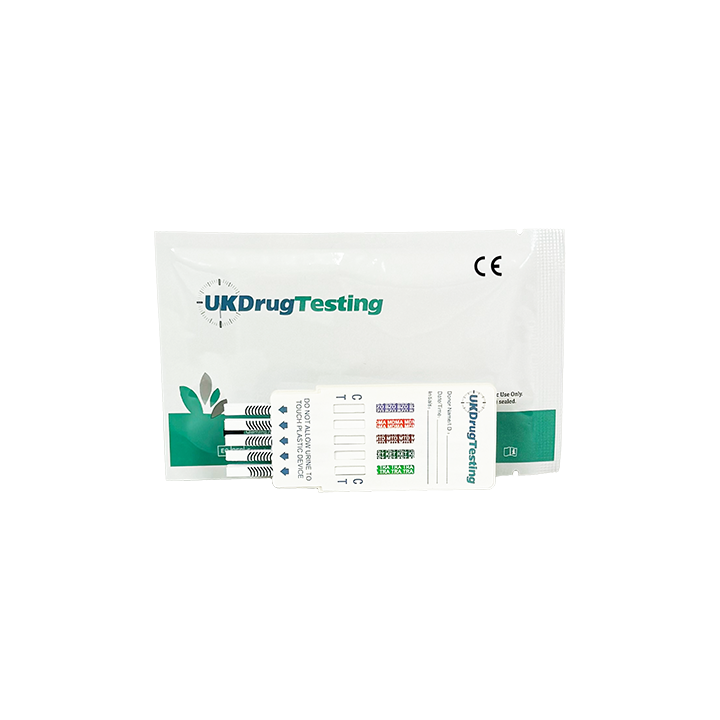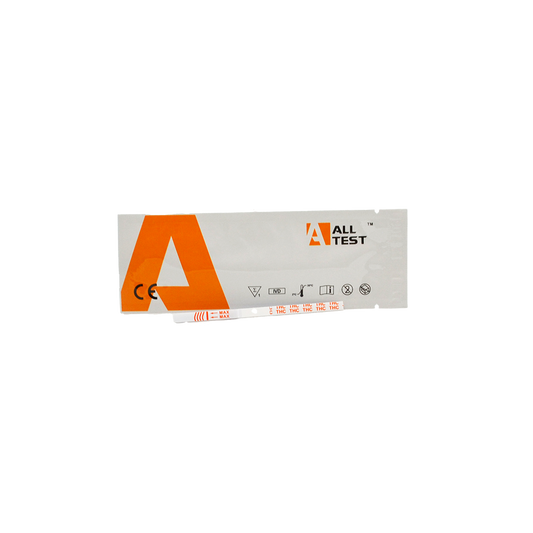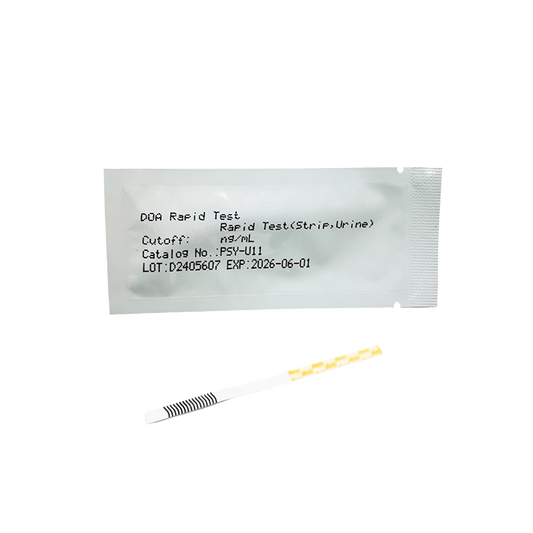Quick Summary - Testing for Hallucinogens
In summary, while creating a specific drug testing routine for psychedelics may not be necessary, if you believe an individual is particularly inclined to experiment with this category of substances, they are most likely to be using LSD. We have included LSD in a targeted Gen Z combination panel for more comprehensive screening.

Urine Drug Test Multi Panel (GenZ)
From £3.25 GBP
Psychedelics, once relegated to the fringes of counterculture, are now sparking mainstream interest. From promising therapeutic benefits to debates on their societal impact, these mind-altering substances like Magic Mushrooms (Psilocybin), LSD, 2CB, and DMT are gaining attention across the UK. But should testing for psychedelics be prioritised like that of more dangerous drugs, such as methamphetamines? Understanding their unique effects and the individuals who use them is essential for addressing this growing debate.
In this article, we explore the four most common psychedelics in the UK, their short- and long-term effects, and how they compare to harder drugs in terms of usage, dependency, and societal risk.
The Four Most Prevalent Psychedelics in the UK (Excluding Ketamine)
Magic Mushrooms (Psilocybin)
Short-Term Effects: Magic mushrooms produce altered perceptions of reality, vivid hallucinations, and changes in mood. Effects typically begin within 20-40 minutes and last around 4-6 hours. Users often report feelings of euphoria and interconnectedness with the world, but anxiety and paranoia are also possible during a "bad trip."
Life-Changing Effects: Magic mushrooms have been researched for their potential to alleviate depression, PTSD, and other mental health disorders. Many users report long-lasting shifts in perspective, increased emotional awareness, and improved mental clarity. However, there are risks of psychological distress, particularly for those predisposed to mental illness.
LSD (Lysergic Acid Diethylamide)
Short-Term Effects: LSD induces profound changes in perception, including visual and auditory hallucinations, and a distorted sense of time. The effects usually begin within an hour and can last 8-12 hours. Like mushrooms, the experience can be deeply euphoric or anxiety-inducing, depending on mindset and setting.
Life-Changing Effects: Some users describe life-altering changes in their view of reality and self, often marked by increased creativity or openness to new ideas. However, prolonged use can lead to flashbacks (hallucinogen persisting perception disorder, HPPD) or exacerbate underlying mental health conditions.
2CB (4-Bromo-2,5-Dimethoxyphenethylamine)
Short-Term Effects: 2CB combines psychedelic and stimulant effects, offering visual distortions, body sensations, and heightened tactile awareness. The effects are shorter-lived, usually lasting 4-6 hours. Users often describe an increase in sociability, alongside visual hallucinations, but anxiety and confusion can also occur.
Life-Changing Effects: As with other psychedelics, 2CB can alter perspectives and thought patterns. However, there is less research into its long-term psychological effects. Recreational use may lead to a desire for further exploration of one's consciousness, though its relatively mild effects compared to stronger psychedelics may result in fewer lasting changes.
DMT (Dimethyltryptamine)
Short-Term Effects: Known for its intense and brief effects, DMT induces profound visual hallucinations and out-of-body experiences. These "trips" usually last 10-30 minutes but are described as feeling far longer. Users frequently report encounters with otherworldly entities or spiritual awakenings.
Life-Changing Effects: DMT is often regarded as a highly transformative drug, with many users claiming to gain insights into the nature of reality, consciousness, and existence. However, the intense nature of DMT can be overwhelming, and those prone to psychological instability may experience lasting anxiety or confusion.
DMT is a relatively rare and lesser-known drug. As a result, there is currently no widely available test for it, primarily due to low demand and limited mainstream use.
Who Uses Psychedelics?
The type of person who uses psychedelics often differs from those who consume harder drugs such as heroin or meth, however many from the same group will still consume more minor drugs such as cannabis and ketamine.
Psychedelic Users: Typically, individuals who experiment with psychedelics like Magic Mushrooms, LSD, 2CB, or DMT are motivated by curiosity, self-exploration, or a desire for spiritual growth. Many users view these substances as tools for expanding their consciousness, tapping into creative insights, or addressing psychological issues. Psychedelic use is more common among individuals in artistic, academic, or countercultural circles, where the pursuit of altered states of consciousness is often seen as a journey rather than an escape.
Should You Test for Psychedelics?
When it comes to workplace or legal drug testing, psychedelics are typically not included in standard tests, especially compared to drugs like meth, cocaine, or heroin, which pose more immediate risks to physical health and safety. The reasons for this are multifaceted:
Low Risk of Physical Dependence: Unlike methamphetamines or opioids, psychedelics do not cause physical dependency. This lowers the perceived risk for workplace safety, where drug testing is often aimed at preventing accidents caused by substance impairment.
Non-Habitual Use: Many people who use psychedelics do so infrequently, with months or even years between trips. This is in contrast to substances like methamphetamine, which often leads to habitual, compulsive use.
Therapeutic Potential: Psychedelics are increasingly recognised for their potential therapeutic benefits. Clinical trials have shown promise in treating mental health issues like depression, PTSD, and anxiety. This raises the ethical question of whether testing for these substances could unfairly penalise individuals seeking relief through novel treatment methods.
Mindset and Context: The effects of psychedelics are highly dependent on "set and setting" – the user’s mental state and environment during the experience. This means that individuals under the influence of psychedelics are less likely to be dangerous in traditional ways associated with drug impairment, as opposed to someone on meth, which can lead to erratic, violent behaviour.
Whether or not to test for psychedelic drug use is a nuanced issue. On one hand, psychedelics like Magic Mushrooms, LSD, 2CB, and DMT can profoundly alter consciousness and behaviour in ways that might impact decision-making in certain environments. However, the absence of physical dependency and growing evidence of therapeutic benefits make a strong case against broad testing policies.
Ultimately, testing should be reserved for scenarios where safety is paramount, but for most individuals, psychedelic use may not present the same risks as harder drugs like methamphetamine. Education about the effects, risks, and benefits of psychedelics may be a more effective approach than testing alone.



